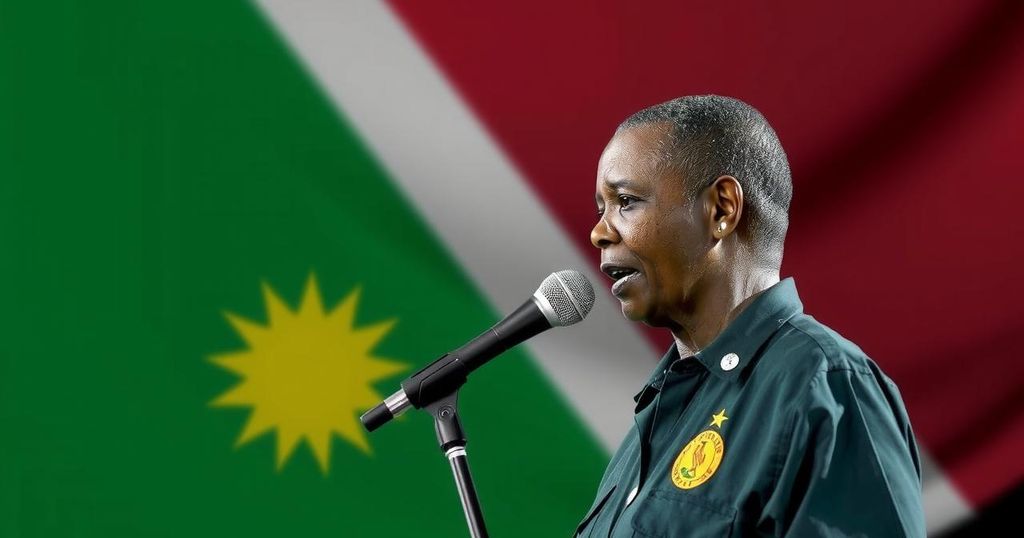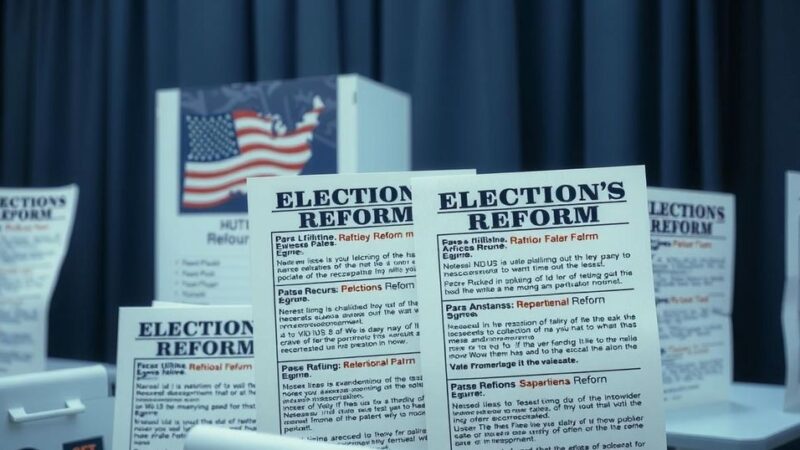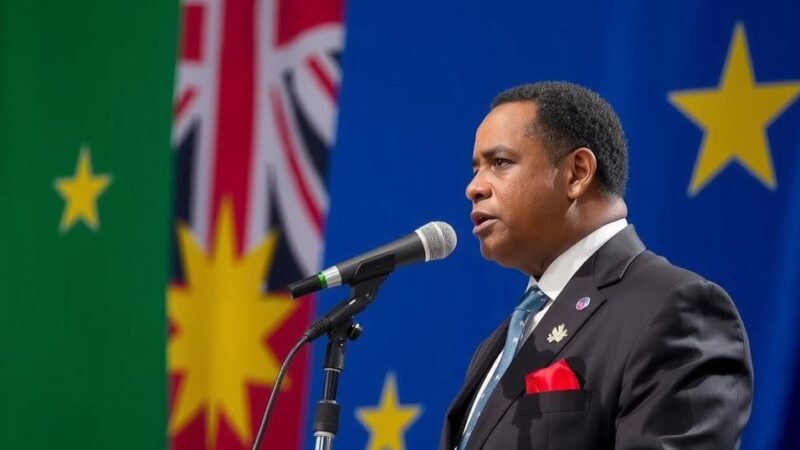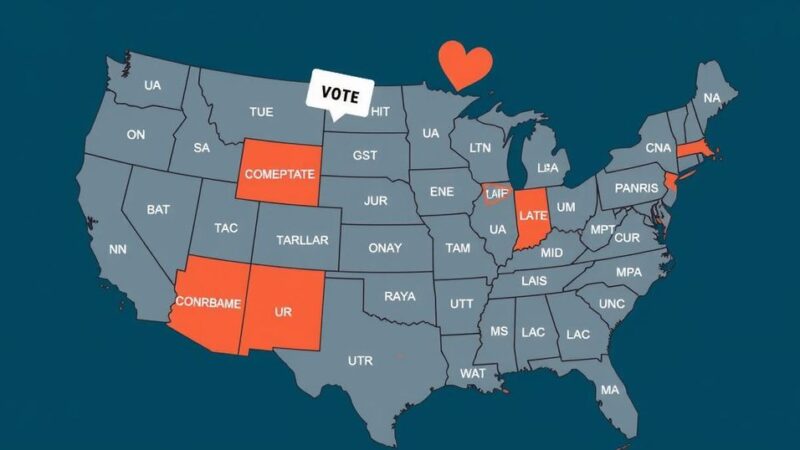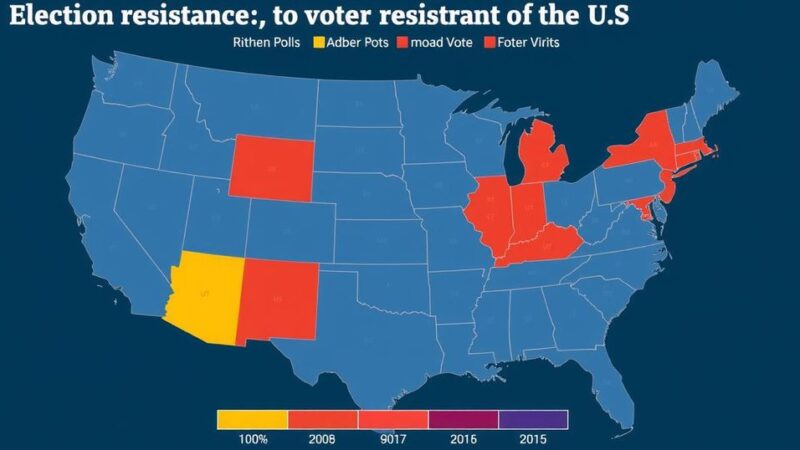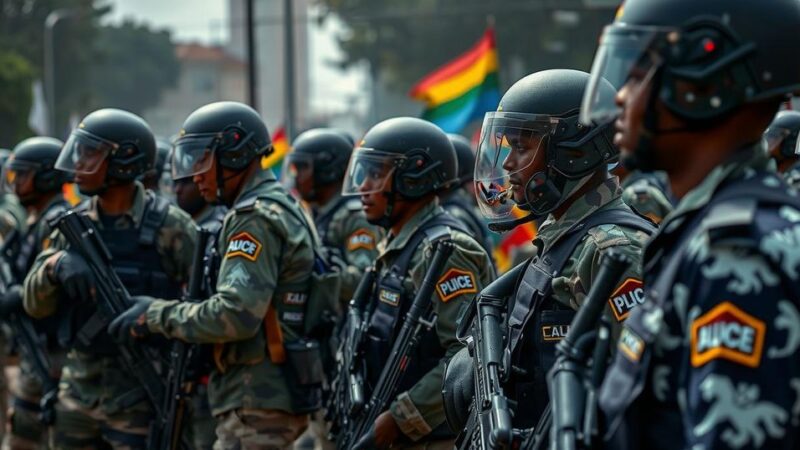Botswana’s ruling party, the Botswana Democratic Party, has lost its parliamentary majority for the first time in nearly 60 years, with the opposition coalition UDC taking a commanding lead. Analysts attribute this outcome to economic grievances among citizens, particularly the youth, stemming from a downturn in the diamond market and rising unemployment rates. President Masisi has conceded defeat and expressed support for the incoming administration, marking a significant political change in the country.
Botswana has witnessed a historic shift in its political landscape, as President Mokgweetsi Masisi conceded defeat on Friday in the country’s recent parliamentary elections. Preliminary results indicated that the ruling party, the Botswana Democratic Party (BDP), lost its parliamentary majority in a significant landslide, marking the end of its nearly 60-year rule since the nation’s independence from British colonial powers in 1966. The opposition coalition, the Umbrella for Democratic Change (UDC), led by lawyer Duma Boko, emerged in a commanding position with initial reports showing 26 parliamentary seats secured against the BDP’s mere three seats from 41 of the 61 contested constituencies. Analysts attribute this substantial political shift to escalating social and economic grievances, particularly among the younger demographic. The BDP has faced mounting criticism for its management of Botswana’s economy, which has heavily relied on diamond exports. A recent downturn in the global diamond market precipitated a significant decline in economic growth and an alarming rise in the unemployment rate, now reported at 28%. In his statement at a press conference, President Masisi expressed his respect for the electorate’s will, stating, “Although I wanted to stay on as your president, I respect the will of the people and I congratulate the president-elect. I will step aside and I will support the new administration.” Celebrations broke out among opposition supporters in the capital, Gaborone, where many citizens expressed their elation at the change in governance. A notable reaction came from 23-year-old student Mpho Mogorosi, who remarked, “I did not ever think I would witness this change in my life. The BDP had stayed too long in power and I am proud to be part of the people that removed them for a better Botswana.” This electoral outcome marks a notable transition in southern Africa, following South Africa’s African National Congress, which recently lost its parliamentary majority after 30 years in power. With upcoming elections in Namibia, where the ruling SWAPO party faces a similar challenge, it is clear that the winds of change are sweeping across the region. Africa analyst Zaynab Hoosen from Pangea-Risk noted that the results of Botswana’s elections should serve as a cautionary tale to long-time ruling parties throughout the region and beyond, emphasizing that without tangible economic progress and job creation, political dominance may be at risk.
The political dynamics in Botswana have been shaped by the long-standing governance of the Botswana Democratic Party (BDP), which has remained in power since the country gained independence in 1966. The party has primarily relied on the nation’s diamond resources as a foundation for its economic growth; however, recent challenges in the global diamond market have resulted in a downturn. Emerging socio-economic grievances among citizens, particularly the nation’s youth facing high unemployment, have increasingly influenced public sentiment toward the ruling party. The recent elections illustrate a broader tendency for long-established ruling parties in southern Africa to face significant opposition amid these pressing economic issues.
In conclusion, the electoral defeat of Botswana’s ruling party signifies a pivotal moment in the nation’s political history, highlighting the electorate’s push for change amidst socio-economic challenges. The UDC’s rise indicates a potential shift towards a more responsive governance model that addresses the needs and aspirations of the populace, particularly the youth. As southern Africa navigates its political landscape, the results from Botswana may inspire similar movements across the region, emphasizing the importance of economic development and responsive governance.
Original Source: www.cnn.com
